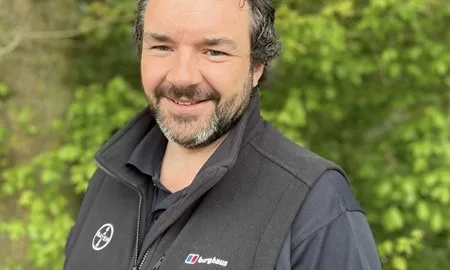Published on 31st October 2024
Local Insights
What arable farmers in Scotland could be doing this November

Current situation (21 October)
Bar the odd field, harvest finally finished during the early part of October for Scottish farmers, helped by, finally, a decent spell of weather.
That’s also helped a number of farms also complete their autumn drilling programmes. In many cases the drill was chasing the combine in the field. Crops that have emerged are generally looking good, and many have had residual herbicide applications.
Potato harvest has also continued in mostly good conditions.
Grant’s agronomy tips for November and through winter
1) Finish off autumn herbicide programmes
While good progress has been made with autumn herbicide programmes there will be some fields that either didn’t need or get a pre-emergence spray, whether because of workloads, poorer quality seedbeds or a weed spectrum that isn’t as difficult to control post-emergence.
In situations where annual meadowgrass and broadleaf weeds are the main issue, assuming you can still travel, the metribuzin-containing products could be a good option for early post-emergence weed control.
There will also be the odd field of wheat, particularly after potatoes, still to be drilled in November, weather permitting. If any of these have difficult grassweeds like bromes, a pre-emergence residual herbicide, based on Liberator (flufenacet + diflufenican) would be helpful as a start to weed control programmes.
Also keep an eye out for pests in cereals – slugs, pigeons and geese in particular, and take any necessary action to avoid crops going backwards. With the current mild weather, aphids transmitting barley yellow dwarf virus could potentially also be a concern, although it tends to be a relatively rare issue this far north.
2) Nutrition, bug and light leaf spot sprays possible for oilseed rape
Oilseed crops vary, although I’ve yet to see a really poor crop. Some crops are thicker than others, but thinner crops can actually yield really well, so I wouldn’t be too concerned by these as yet. Ideally, you’re looking for plants with a root collar of about 1cm diameter going into winter.
Some growers have applied graminicides, which will help reduce weed competition, while general nutrition applications are imminent. These could be mixed with insecticide sprays for rape winter stem weevil in early November. There’s no threshold for this pest, but it can cause problems with secondary branching in crops, reducing yields.
Also keep an eye out for light leaf spot – potentially a fungicide could be added or sprayed separately, if needed.
3) Get up to date with soil sampling
This time of year can be a good time to get up to date with soil sampling across the farm. Basic soil samples should measure pH, P, K, magnesium and sulphur, and possibly organic matter, while more expensive tests might add in other micronutrients.
Aim to sample each field once every four years, which equates to sampling around 25% of the farm each year.
If you’re growing potatoes next year, soil samples for general nutrition can be helpful, and possibly for free living nematodes. Understanding this risk might help with varietal planning.
While fields for seed crops will be tested for potato cyst nematodes by the department for agriculture, those with ware crops might also want to consider doing a test. Again, it can help with planning rotations.
4) Other jobs
Where you have grain in store, as external temperatures change, make sure the stores are being managed so there are no issues with either insect or rodent pests building up.
Finally, make sure sprayers are filled up with anti-freeze before being parked up for winter, where necessary, and check for any required maintenance on them or any machinery.
Liberator® contains flufenacet and diflufenican. Liberator is a registered trademark of Bayer. Use plant protection products safely. Always read the label and product information before use. Pay attention to the risk indications and follow the safety precautions on the label. For further information, including contact details, visit www.cropscience.bayer.co.uk or call 0808 1969522. © Bayer CropScience Limited 2024.



